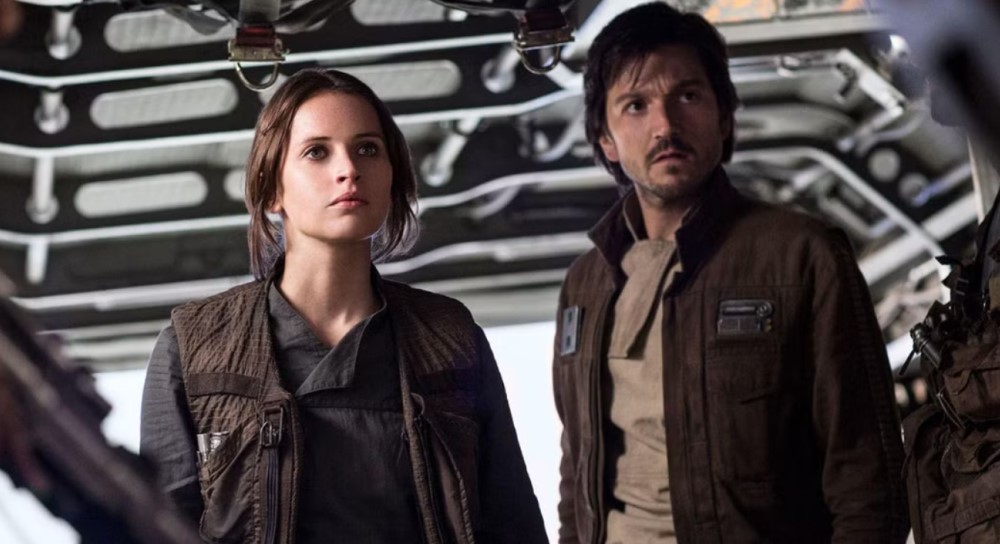The relationship between Cassian and Jyn in Rogue One could be looked at in a number of ways; an attraction, a kinship, a friendship, a bond forged in fire and fused into glass on the beach of Scarif. However, with the two seasons of Andor building the love betwen Cassian and Bix to the heartbreaking coda of learning they have a son in the final moments of the final episode, that Jyn/Cassian relationship is now viewed in an entirely different light, and Tony Gilroy touched on that in a new conversation with Collider.
“I knew very well what had happened with Jyn and Cassian in Rogue One and what had happened in the elevator,” Gilroy noted, referring to the fact that he rewrote parts of the film. “I knew that scene very, very well. I probably went back and looked at that. I was pleased to see that my memory of it was of all the other takes and other things, and I was really pleased to see how we’d edited that, that it was really ambiguous about what it was, and then I didn’t care anymore. I was like, ‘Okay. It makes sense.’”
“I mean, they’re both pretty sexually liberated in their way. I think that first kiss they had, I think the first person they ever slept with is each other. Who knows how old they were on Ferrix? Probably very, very young. And over time, they were together and not together. Timm starts off the show, and who’s in charge of that relationship, right? Cassian certainly has a rich history in just the little bit we see, and has alluded to, and his mother calls him out on all his girlfriends, and there’s Windi on Niamos. I think they have a very healthy idea of what the different calibrations of love are.”
“It’s also instructive to remind you that you may go on a project tomorrow and have a really intense relationship with a bunch of people, and not even romantic, but you may have a very intense relationship with people and feel that you are incredibly close friends. Then you realize that, oh my god, they’ve been married four times. We all have an accumulation of history, and what we’re made of is often way more complicated than we want to admit.”


